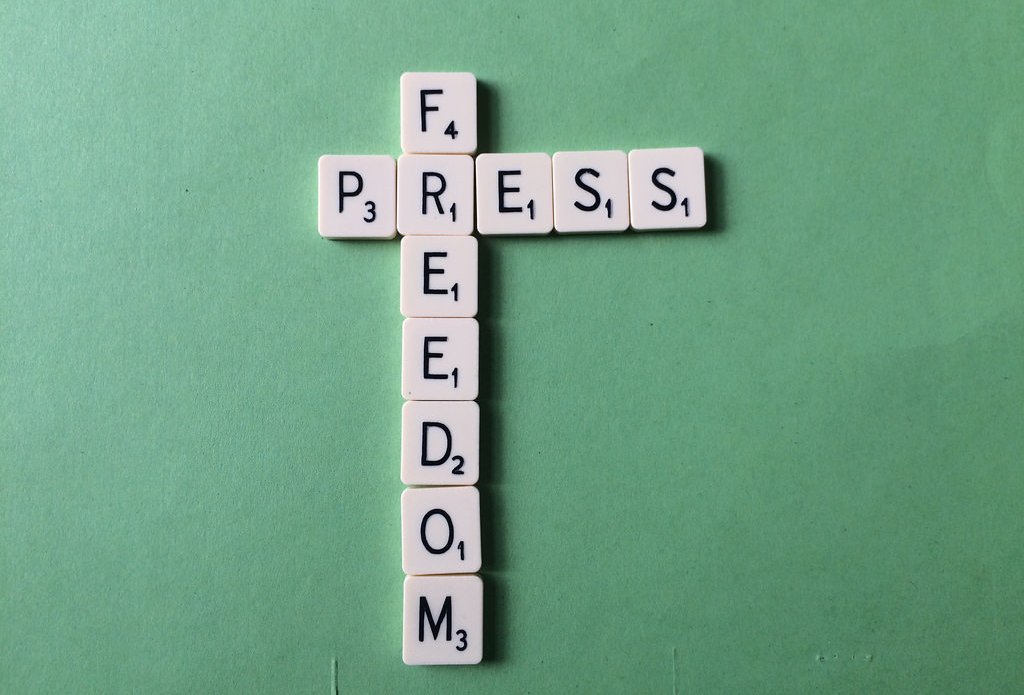Press Freedom Increasingly Under Pressure Worldwide

The renowned non-governmental organisation Reporters Without Borders (RWB) has published its World Press Freedom Index – and, regrettably, the trend from past years has been confirmed: press freedom is increasingly under pressure worldwide. Even in democracies, the tendency to restrict independent media and journalists mounts. The Friedrich Naumann Foundation for Freedom (FNF) advocates press freedom both in Germany and in more than 60 countries. FNF supports media representatives and journalists worldwide through exchange programmes and dissemination of important basic techniques. Our colleagues in Germany took the publication of the RWB ranking as an opportunity to ask colleagues from Turkey, Russia and Ukraine about the press freedom developments and the restriction methods used in their project countries.
Turkey – Hans-Georg Fleck, Turkey Project Director
What is the direction of development of press freedom in your project country?
Over the past years, press freedom in Turkey has been continually restricted under the AKP-dominated government. Journalists have been imprisoned, newspaper editorial offices closed down by court rulings, entire publishing houses wiped out with a scratch of the pen. This repressive course has continued uninterruptedly under the emergency rule imposed after the failed military coup in 2016 and has been extended several times already. With the exception of a handful of print and electronic media, mainly of meagre reach, the Turkish media landscape has been ‘brought into line’. It is only on the Internet that oppositional opinions could still be elaborated.
What methods of restriction are used?
The state applies a wide range of measures to discipline Turkish media. A typical feature of the media landscape here is the purchase of opposition media by companies outside the media and publishing business that are close to the government and are ‘compensated’ by those in power for these sometimes unprofitable transactions with lucrative contracts in other business areas (especially in the construction sector). Self-censorship, (in some cases directly physical) threats against inconvenient journalists and the repression of journalists with politically motivated trials are daily fare. Through the elimination of independence in the judiciary, the established judicature has turned into a pliable instrument of those in power in their fight against freedom of expression.
Russia – Julius von Freytag-Loringhoven, Russia and Central Asia Project Director
What is the direction of development of press freedom in your project country?
Over the past year, the situation in Russia in terms of press freedom has deteriorated even further. While most TV stations are already under state control, now even RBC TV, one of the last independent broadcasters, is threatened with a takeover under pressure from the Kremlin. Critical newspapers, radio stations and web portals continue to be under pressure. In particular, reporting on the persecution of homosexuals in Chechnya has led to threats by Chechen officials against journalists; yet Russian authorities have remained silent on guaranteeing their safety. The Foundation for Freedom nevertheless continues to promote press freedom in Russia and organises journalist exchanges with Germany.
What methods of restriction are used?
By virtue of their ownership structure, the overwhelming majority of TV broadcasters in Russia are under the direct control of the presidential administration. While there are still a number of critical newspapers, radio stations and web portals, self-censorship is growing even among them after the dismissal of some prominent journalists under pressure from the Kremlin. A law against extremism on the Internet has already blocked a range of critical blogs and portals in Russia. Furthermore, journalists’ personal security is not sufficiently guaranteed, as the many murders of journalists over the past decade have shown.
Ukraine – Miriam Kosmehl, Ukraine & Belarus Project Director
What is the direction of development of press freedom in your project country?
Press freedom in Ukraine is becoming increasingly ambivalent. On the one hand, there are diverse TV, radio and print media, including independent ones with a pretence of quality, such as the online newspaper Ukrainska Prawda, the public-law broadcasters Hromadske TV and Hromadske Radio and some investigative TV programmes. The blogger scene is bustling, and media projects campaign for professionalism and expose propaganda. On the other hand, however, the intransparent interweaving of media ownership and politics has a devastating effect on opinion formation. This applies particularly to the handful of oligarch-owned TV stations which more than three quarters of the population inform themselves from.
What methods of restriction are used?
Attempts to hinder or assault journalists regularly result in civil protests, the most recent case having been the shelling of an investigative TV team. Naturally, the ongoing hybrid war is a challenge. Indeed, Kiev arbitrarily bans news coverage under the pretext of national security. If nothing else, citizens are fiercely arguing about whether journalists and the media can be ‘unpatriotic’ and ought to therefore be blocked. Censorship is further brought on by a new presidential decree implementing a decision by the National Security and Defence Council which makes it possible to restrict Internet access. Domestic and foreign journalists are confronted with work or entry restrictions or villainised as supporters of the so-called People’s Republics or of terrorists. This is a precarious selection, even if Ukraine is the victim of Russian aggression.
Please find the original and longer analysis by our colleagues in Germany, covering more countries, beyond East and Southeast Europe.